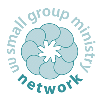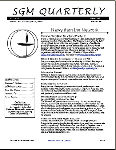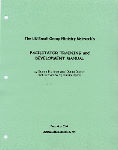Our covenant group program was started about 7-8 years ago and is still going strong. We generally have between 45-55 people enrolled in 6-7 groups of about 7-8 people each. Each fall we register participants and assign them to groups, based on their available times. We find that creating new groups each year allows the participants the option to meet many new people. It has worked well for us. Each group meets 12 times from Oct to June, or about every 3-4 weeks. During their session, the group will do one or two service projects. The facilitators also hold periodic meetings during the calendar year, usually with the minister participating.
This year we have a group of four members who are writing the topics. The inspiration for these comes from a variety of sources. Your SGM website has been a good resource for us. Thank you for the extensive list of topics used by other congregations.
This is how we set up our groups at the beginning of our church year in September. First we get the facilitators lined up (e.g. in August). Many of these are repeats from previous years. The facilitators generally pick a time when they are available to lead a group. Registration is open for about 3 weeks. People sign up for 2 or more preferred times. Then we juggle the participants trying to balance the mix of male, female, new members, single and married, younger and older. The groups are reviewed with the facilitators, who then contact the participants and set up a time for the first meeting. This year our interim minister spoke of the value of small group ministry, giving a boost to the registration.
We may be found at http://www.uuwellesley.org/.
Best wishes, Trina









